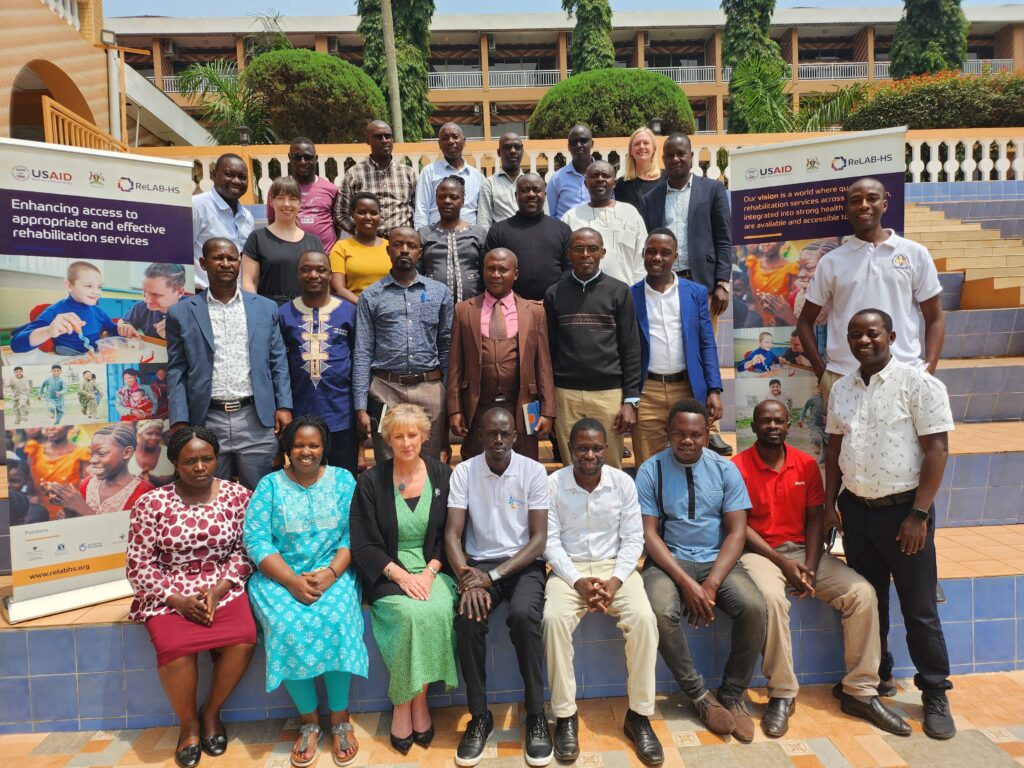Last week in Uganda a 2-day ReLAB-HS workshop with professional associations, regulation authorities and training institutions was held to implement the IRETT to leverage interprofessional collaboration as a tool to promote workforce strengthening activities in Uganda.
A strong and cohesive rehabilitation workforce is vital to help address the growing need for rehabilitation by improving access to services as well as the quality of care received by patients, particularly in low and middle income countries. A key step towards strengthening the rehabilitation workforce is to foster effective interdisciplinary collaboration. This was the focus of the recent 2-day ReLAB-HS workshop in Uganda, set up to implement the International Rehabilitation and Education Toolkit (IRETT). The IRETT is a series of courses and resources that can be integrated into any workforce development strategy, anywhere in the world.
The meeting held on 22–23 January 2024 was hosted by Physiopedia’s Herbert Omoding, Yara Perterko and Larisa Hoffman along with the ReLAB-HS Uganda country team for 24 participants from the Uganda Association of Physiotherapy, Speech and Language Association of Uganda, Uganda Association of Occupational Therapy, Uganda Association of Orthopaedic Technology, Allied Health Professions Council, Mbarara University, St Michael Lubaga Hospital Training School and the Uganda Institute of Allied Health and Management Sciences.

During the workshop the IRETT Professionalisation and Regulation Reflection Tool (PRRT) was used to address the inconsistency in education standards in rehabilitation professions in Uganda. The IRETT Academic Program Reflection Tool (APRT) was then used to create learning outcomes, curricular models, and course syllabi. Highlights of the workshop included a presentation from the President of the World Federation of Occupational Therapy (WFOT), Samantha Shann, who shared global perspectives and resources to advocate for professions locally, including the World Rehabilitation Resolution and World Rehabilitation Alliance Workstream resources.
Varied topics discussed during the workshop including the idea of creating a School of Rehabilitation Studies, brainstorming ways to reduce the human resources burden of professional programmes and strategies to strengthen curriculum. There was collaboration in writing programme competencies, in promoting Bachelor’s level professional education for all rehabilitation professions and in creating abstracts to submit to congress.
The success of this meeting was down to the exceptionally engaged participants creating a shared vision to sustain future collaboration. Further regular meetings with international mentors will continue this work using the IRETT over the next year.
This work is supported by the USAID funded Learning Acting Building for Rehabilitation in Health Systems (ReLAB-HS) project and is not possible without the generous and committed contribution of the Leahy War Victims fund.
ReLAB-HS is made possible by the generous support of the American people through the United States Agency for International Development (USAID) and is implemented under cooperative agreement number 7200AA20CA00033. The consortium is managed by prime recipient, Johns Hopkins Bloomberg School of Public Health.

